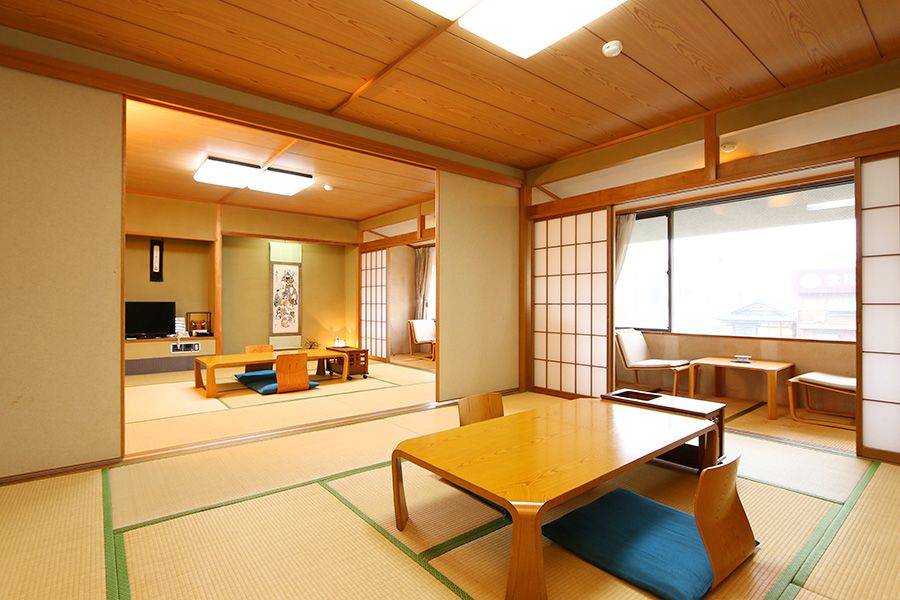Review Oden: A Soulful Taste of Japan’s Comfort Cuisine
The Origins of Oden – A Steaming Tradition Born from Japanese Ingenuity
Oden’s history traces back centuries to Japan’s Edo period, when street vendors sold simple skewered tofu or konnyaku simmered in miso broth. Over time, Oden evolved into a rich and diverse hot pot featuring multiple ingredients cooked in a soy-flavored dashi broth. Each region added its own flair, reflecting the flavors, traditions, and resources unique to the area.
Historical Roots and Evolution
Originally known as Misodengaku, early versions of Oden featured skewered tofu grilled with miso paste. As culinary styles changed, cooks began simmering these ingredients in broth instead of grilling them, creating what we now recognize as Oden. It gradually became a favorite winter meal, served everywhere from roadside stalls to luxurious restaurants. The dish embodies Japan’s ability to transform simplicity into art – a perfect blend of flavor, warmth, and culture.
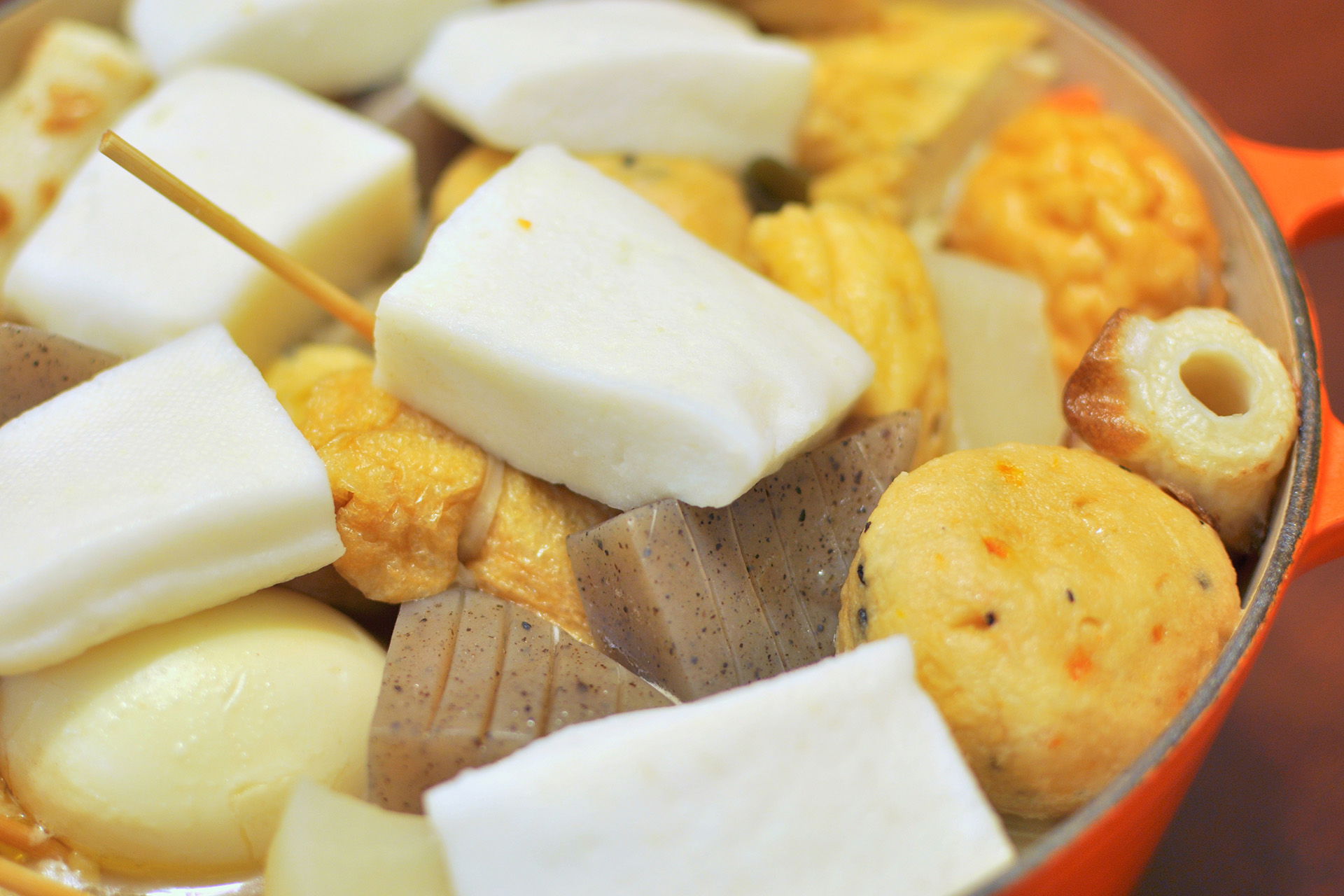
Symbolism and Meaning in Japanese Life
Beyond its taste, Oden symbolizes community and care. Families and friends gather around steaming pots during cold months, sharing laughter and stories. Yoshida Hotel notes that Oden is not just a dish – it’s a seasonal ritual that brings people together, offering warmth both physical and emotional.
The Essence of Oden – A Symphony of Ingredients and Broth
The beauty of Oden lies in its simplicity and diversity. Every ingredient absorbs the rich umami of the dashi broth, creating a harmonious blend of flavors in every bite. The dish is slow-cooked, allowing ingredients to become tender while retaining their distinct textures.
Key Ingredients That Define Oden
- Daikon (Radish): A staple of Oden, it soaks up broth beautifully and provides a soft, sweet texture.
- Konnyaku: A jelly-like food made from konjac root, offering a chewy texture and light flavor.
- Chikuwa and Hanpen: Classic Japanese fish cakes that add savory depth.
- Boiled Eggs: Absorb the dashi broth for rich flavor.
- Tofu and Atsuage: Provide protein and soak in the umami essence of the soup.
- Ganmodoki: Fried tofu mixed with vegetables for texture and complexity.
- Broth (Dashi): The soul of Oden, made from kombu and bonito flakes, seasoned with soy sauce and mirin.
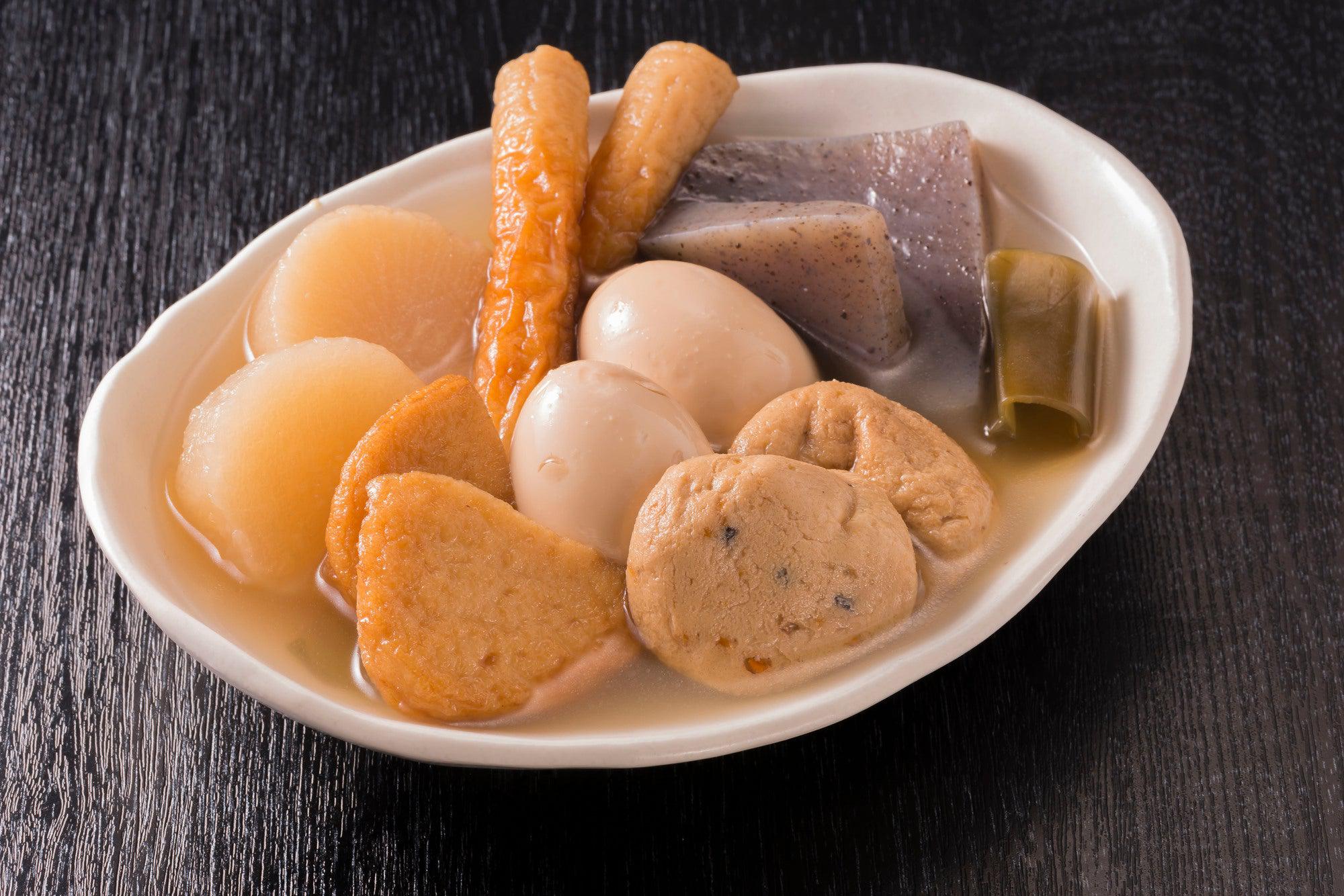
The Secret to the Perfect Broth
A great Oden depends on a perfect balance between saltiness, sweetness, and umami. The broth must simmer slowly, often for hours, to allow ingredients to meld harmoniously. The longer it simmers, the richer and more comforting it becomes – a reflection of the patience and artistry behind Japanese cooking.
Regional Variations of Oden – Exploring Japan’s Local Flavors
Tokyo Oden – Subtle and Elegant
In Tokyo, Oden is light and clear, focusing on the purity of dashi. Common ingredients include daikon, tofu, konnyaku, and fish cakes. It represents Tokyo’s refined urban taste.
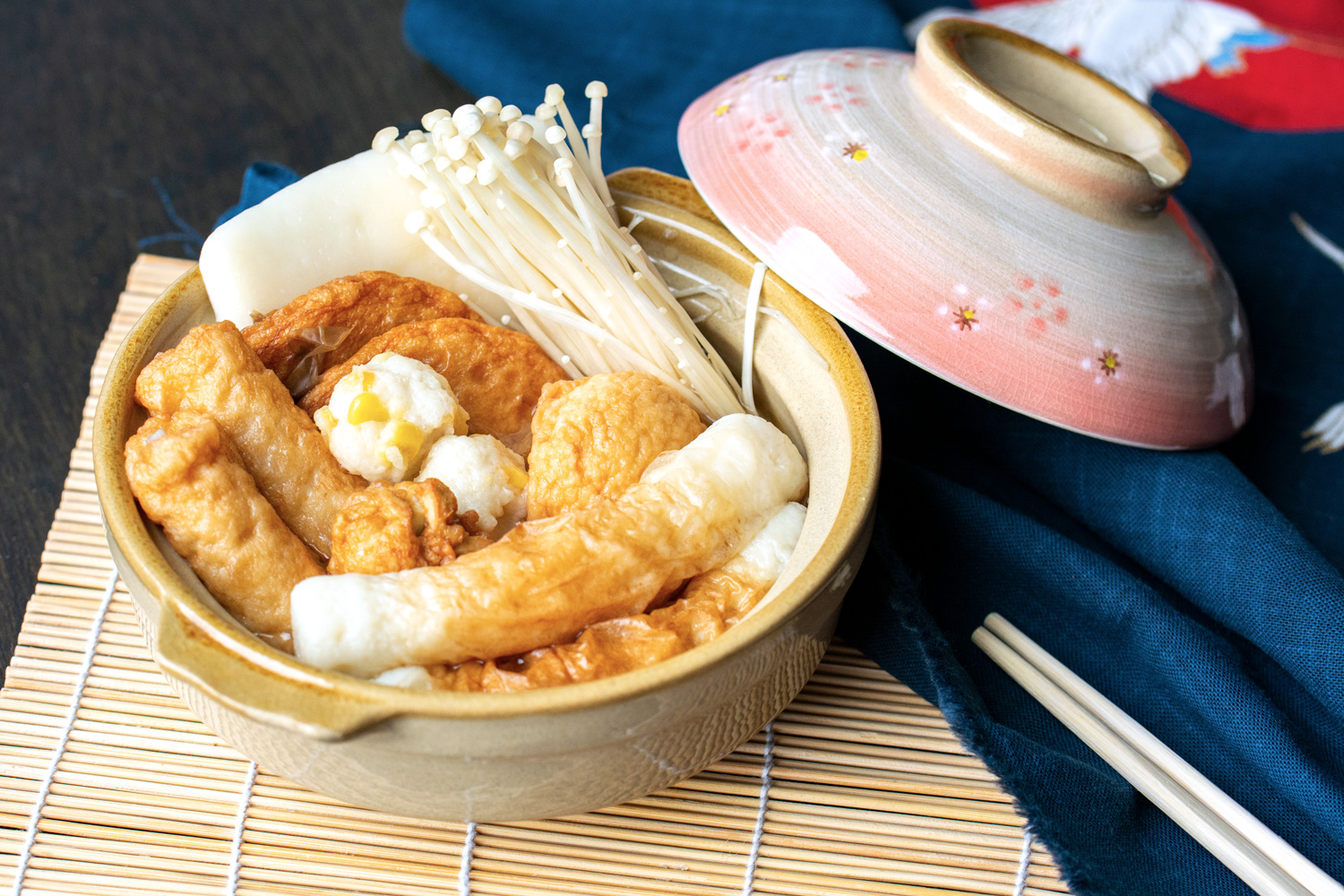
Kansai Oden – Rich and Bold
Osaka’s version of Oden features a darker, soy-rich broth with stronger flavors. Ingredients like beef tendons and eggs are simmered longer for deep umami richness. Kansai Oden is hearty, bold, and full of life.
Nagoya Oden – The Miso Twist
In Nagoya, Oden is served with red miso-based broth, creating a robust and savory taste that reflects the region’s love for intense flavors.
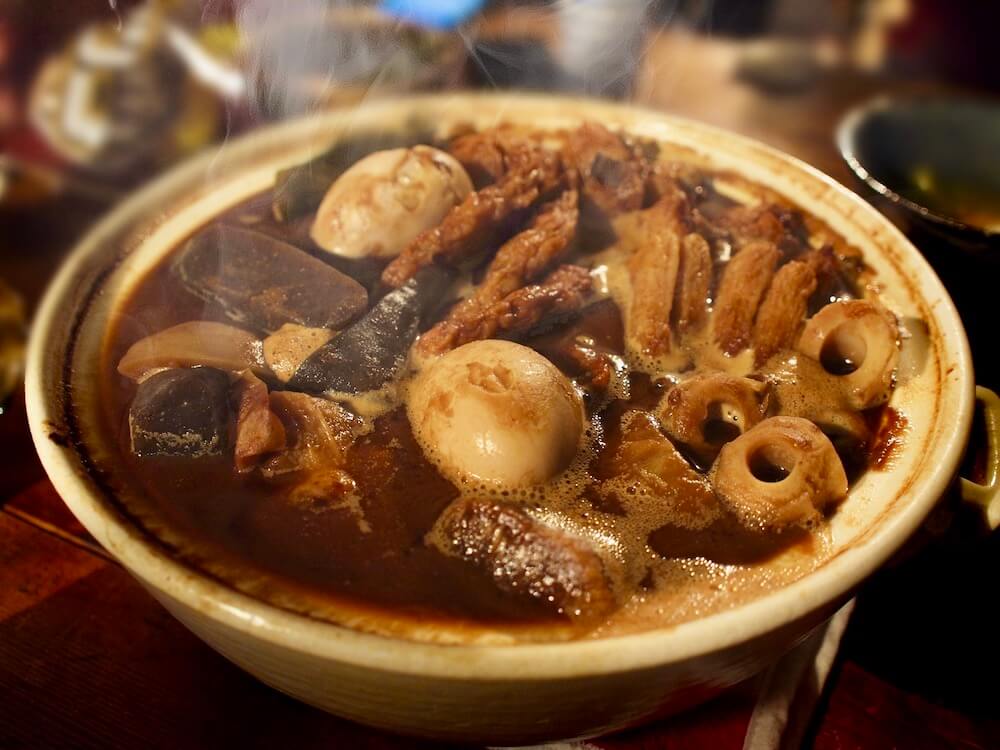
Hokkaido Oden – Comfort for the Cold North
In Hokkaido’s cold climate, Oden often includes seafood such as crab, scallops, and salmon. The broth is thicker and more robust, perfect for warming up during winter’s chill.
Okinawa Oden – A Tropical Take
In Okinawa, Oden is lighter, often featuring local vegetables, pork, and unique island ingredients. It demonstrates how Japan’s regional diversity enhances even the simplest of dishes.
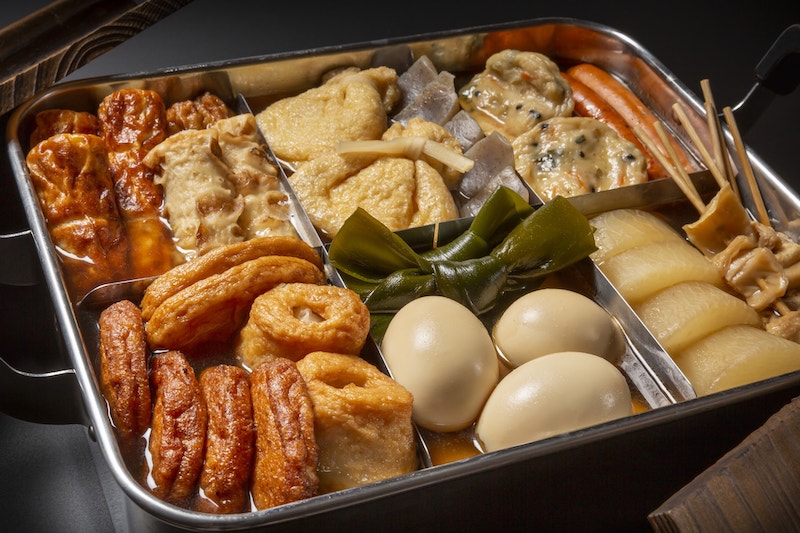
Oden and Japanese Culture – More Than Just a Meal
Oden is deeply ingrained in Japanese daily life. It’s not merely a winter dish but a reflection of hospitality, patience, and connection.
The Spirit of Omotenashi (Hospitality)
Serving Oden is an act of care. The slow cooking process reflects Japan’s cultural appreciation for time, detail, and harmony. Yoshida Hotel highlights how Oden embodies the Japanese spirit of omotenashi – the art of thoughtful hospitality.
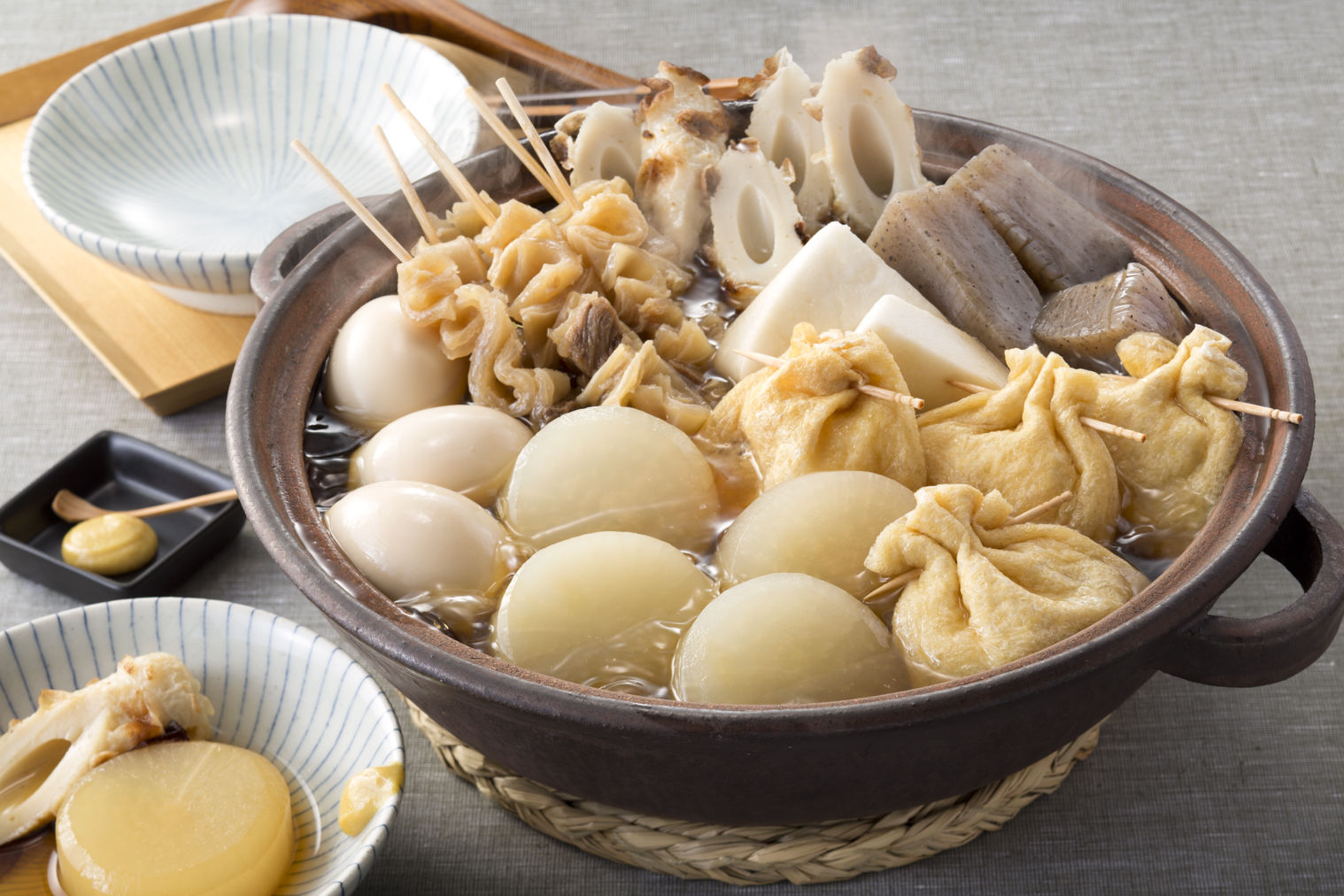
Street Food and Festivals
Street vendors selling Oden are an iconic part of Japanese culture. During winter festivals, steaming pots fill the air with comforting aromas. The sight of Oden stalls under glowing lanterns is synonymous with Japan’s festive warmth.
The Modern Revival of Oden – From Tradition to Innovation
Oden in Contemporary Cuisine
Modern chefs are reimagining Oden with new ingredients and presentation styles. Michelin-star restaurants serve gourmet versions with truffle-infused broth or premium seafood, while cafes experiment with vegetarian and vegan Oden options.
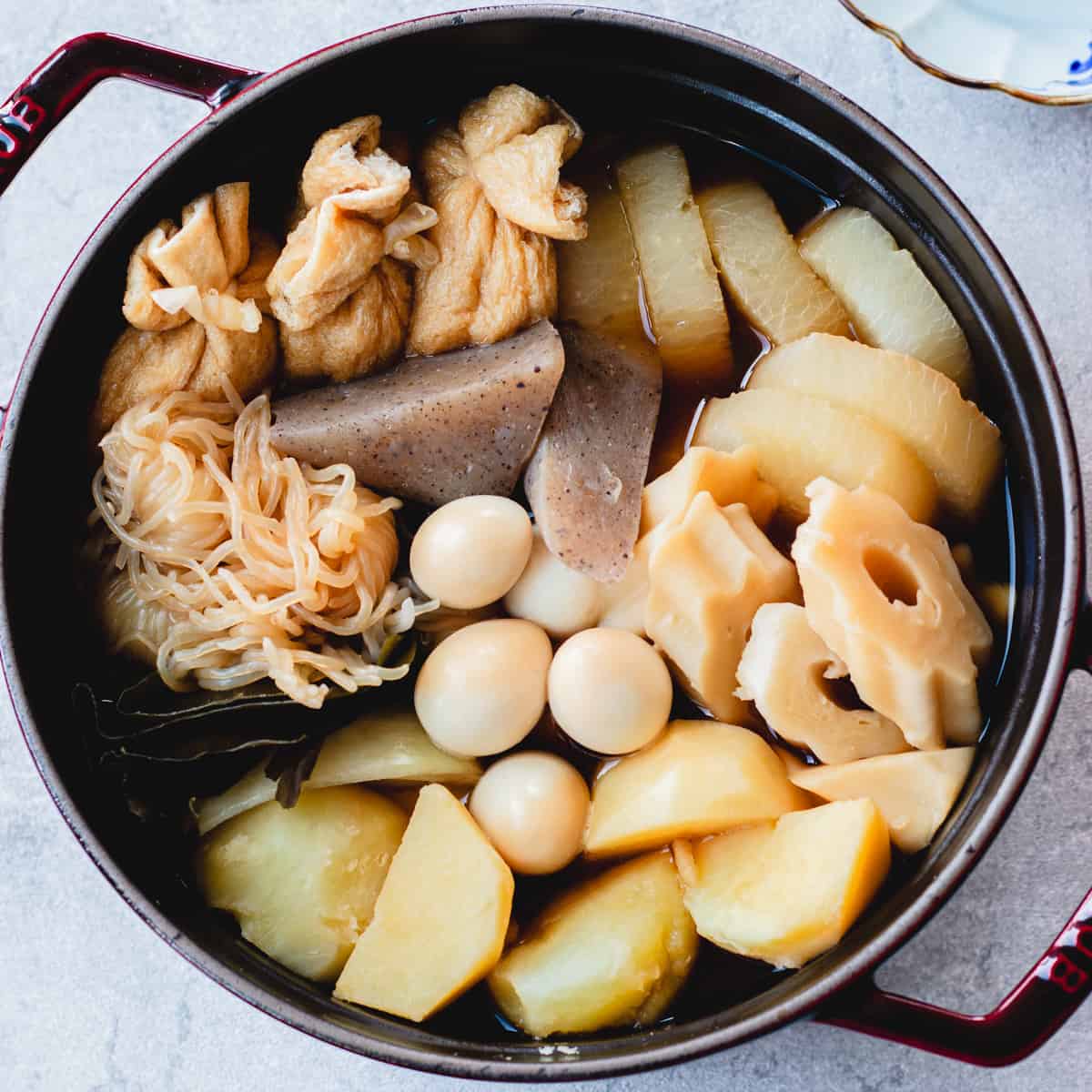
Convenience Store Oden – Everyday Comfort
Convenience stores across Japan, especially 7-Eleven and Lawson, have made Oden accessible year-round. These steaming pots are a quick, affordable comfort for busy workers and travelers, proving Oden’s enduring appeal.
Oden and Health – A Nutritious Comfort Food
Oden is not only delicious but also healthy. It’s low in fat, high in nutrients, and packed with flavor without heaviness.
Nutritional Benefits
Each ingredient contributes vitamins, minerals, and protein. Daikon aids digestion, tofu provides calcium and protein, and eggs offer healthy fats. The clear dashi broth keeps it light yet satisfying.
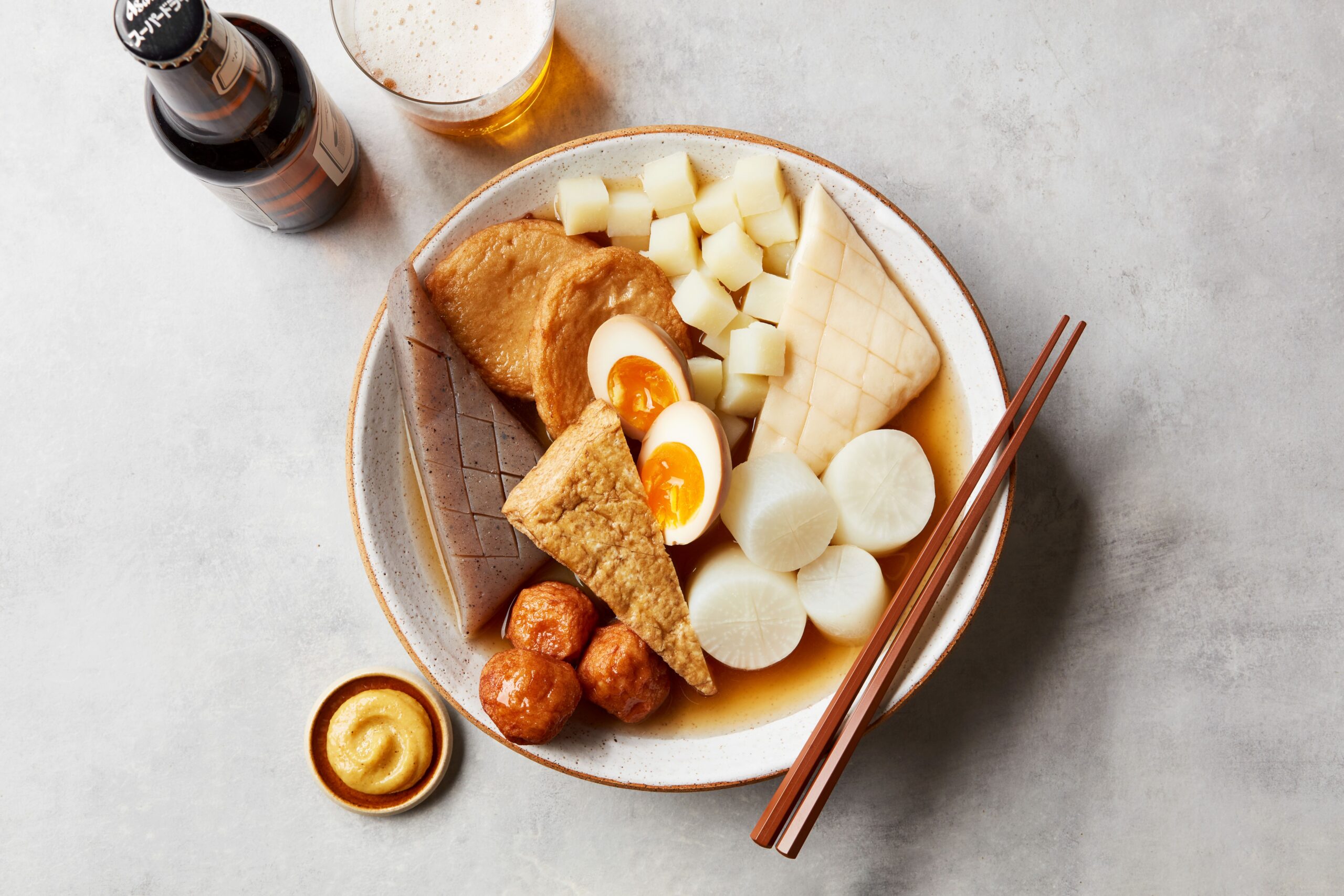
Perfect for All Diets
Oden fits easily into various diets – pescatarian, vegetarian, or low-calorie – depending on ingredients used. Its flexibility makes it ideal for both traditional and modern wellness lifestyles.
How to Enjoy Oden Like a Local
Seasonal Dining
Oden is best enjoyed during Japan’s cold months, from late autumn through early spring. Families gather around steaming pots, sharing comfort and stories.
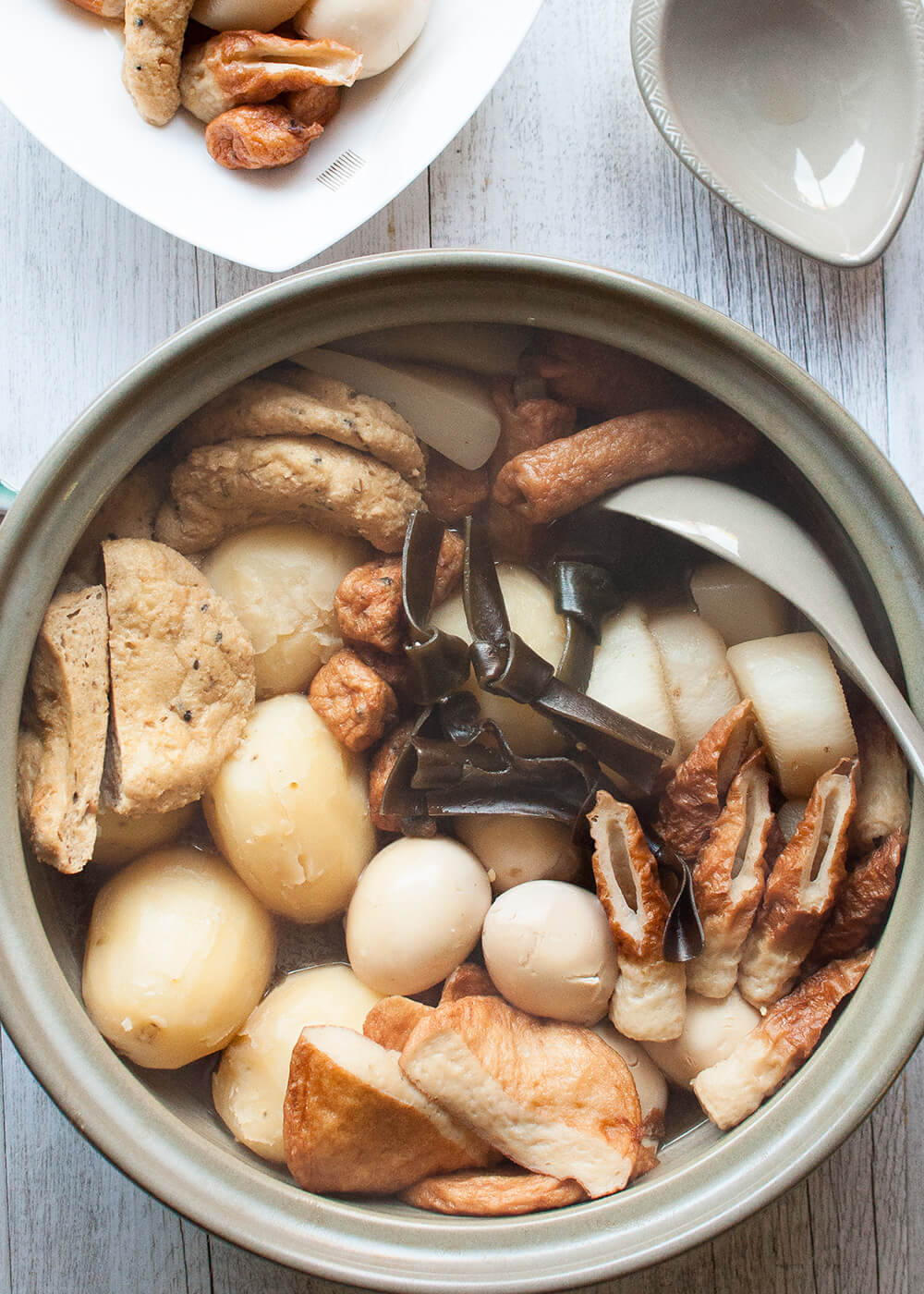
Condiments and Side Dishes
Oden pairs beautifully with karashi (Japanese mustard), which adds a sharp contrast to the mellow broth. Side dishes like rice or sake complement the flavors perfectly.
Pairing Drinks with Oden
- Sake: Enhances the umami and warmth of Oden.
- Beer: Balances richness with crisp refreshment.
- Green Tea: A light, soothing option for non-alcoholic pairing.
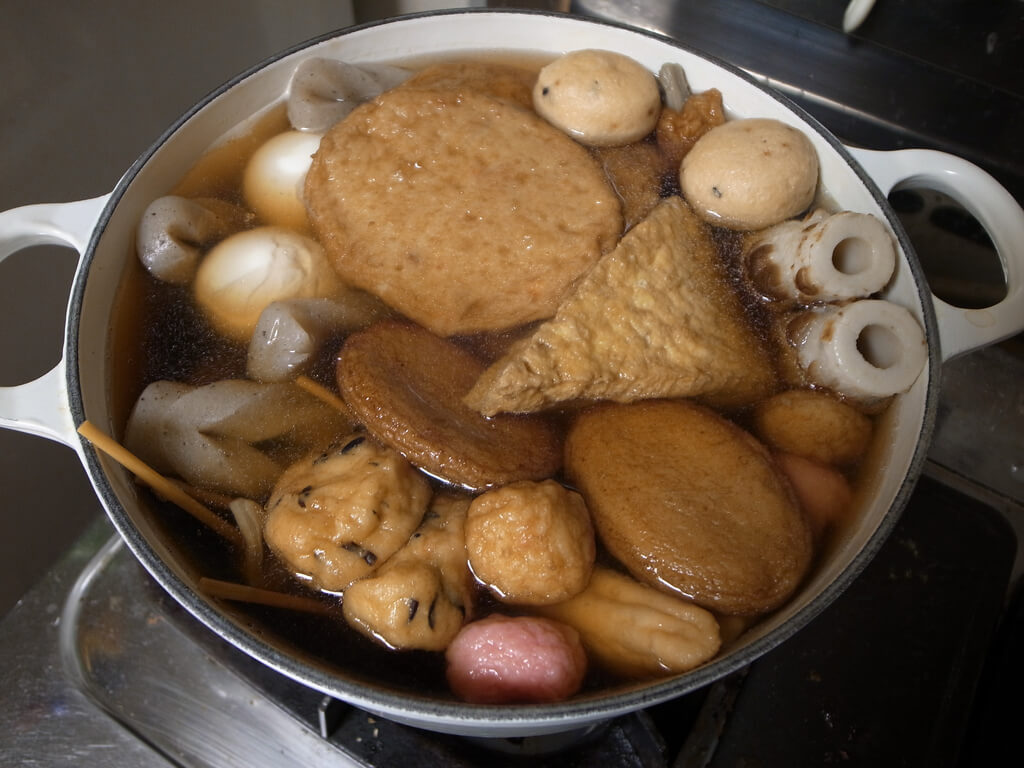
Oden in Japanese Homes – A Tradition of Togetherness
At home, Oden brings families together. Parents pass down recipes to children, maintaining culinary traditions across generations. The dish represents connection, patience, and love – values central to Japanese life.
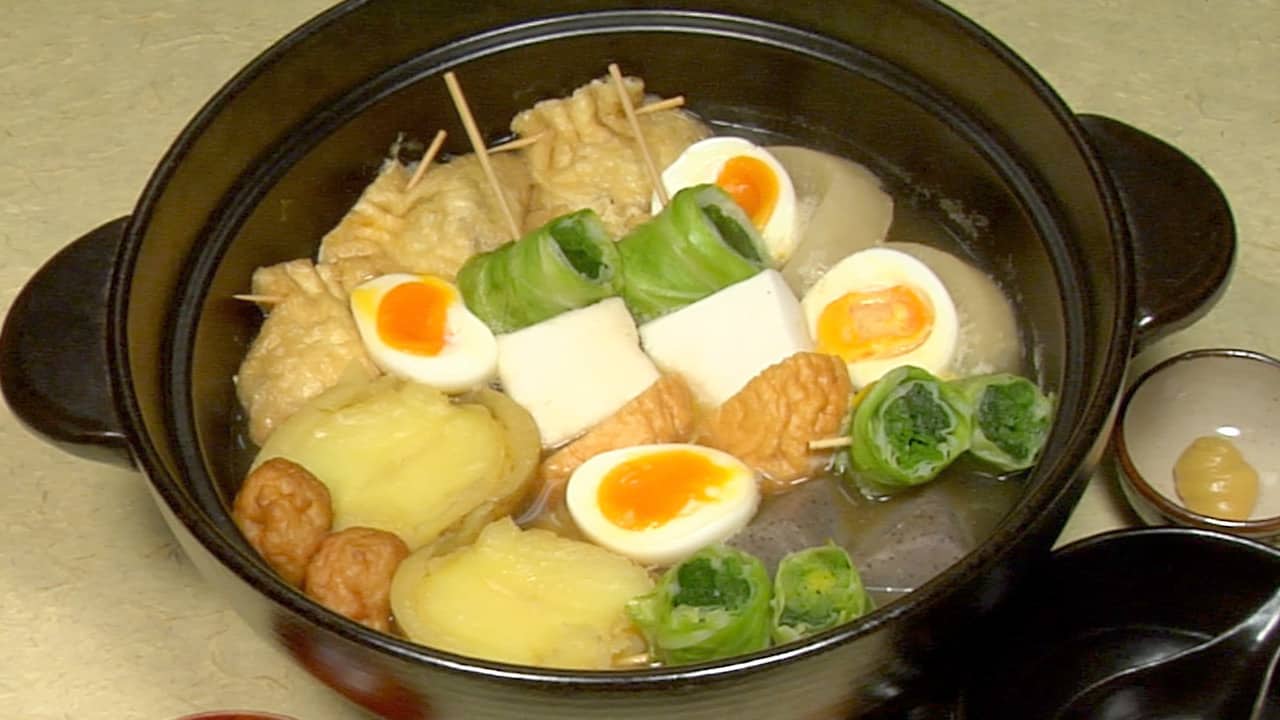
The Emotional Value of Oden
Every pot of Oden tells a story. It may remind someone of their childhood, a festival night, or a winter gathering. For Yoshida Hotel, Oden embodies nostalgia and belonging – a dish that transcends food itself.
Cooking Oden at Home – A Step-by-Step Journey
To make authentic Oden, start with dashi broth seasoned with soy sauce and mirin. Add harder ingredients like daikon and eggs first, simmer slowly, then introduce softer items like tofu and fish cakes. Let everything cook gently for at least an hour to ensure rich flavor absorption.

Home cooks can customize their Oden, adding personal touches such as seasonal vegetables, seafood, or even mochi. The key is patience – the longer it simmers, the deeper the flavor.
Where to Experience Authentic Oden in Japan
Travelers can find exceptional Oden in every corner of Japan, each offering a unique flavor experience:
- Tokyo: Elegant and refined Oden served in traditional izakayas.
- Osaka: Bold and flavorful, featuring thick broth and beef tendon.
- Nagoya: Miso-based Oden with local spices.
- Hokkaido: Seafood-rich Oden for winter comfort.
- Okinawa: Light and tropical variations with island ingredients.
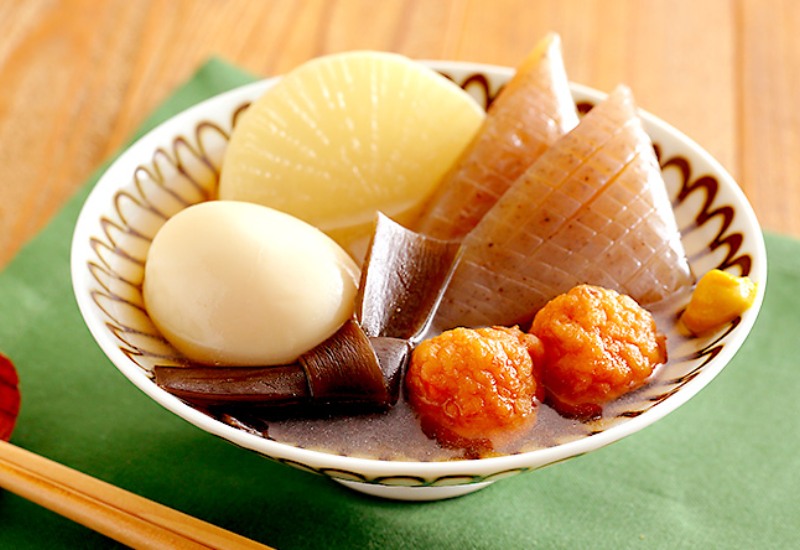
Experiencing Oden with Yoshida Hotel – A Journey Through Flavor and Tradition
Yoshida Hotel invites travelers to experience Oden as more than a meal – as a story of Japan’s culinary soul. Whether enjoyed in a bustling street stall or a tranquil ryokan, Oden represents comfort, community, and culture. Through each simmering pot, one tastes the warmth of Japanese tradition and the artistry of simplicity.
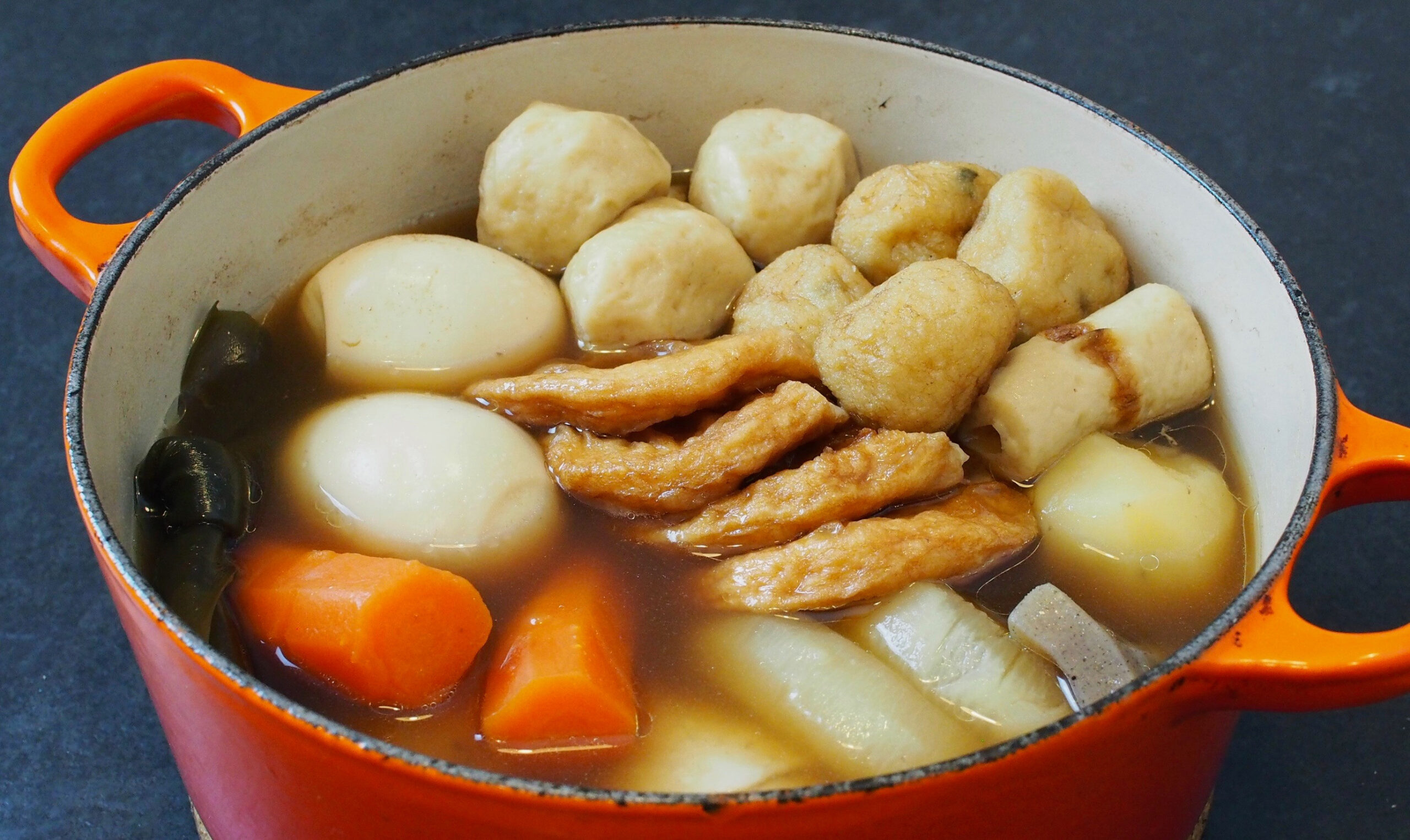
Conclusion
Oden is a dish that transcends generations – a heartwarming symbol of Japan’s rich culinary culture. Together with Yoshida Hotel, we’ve explored its history, flavors, and enduring meaning in modern life. Each ingredient tells a story of care, patience, and flavor, reminding us that the simplest dishes often hold the deepest connections. For travelers seeking to understand Japan’s cuisine and culture, Oden offers the perfect beginning to that journey.
Details
Namistay chain hotel
- 61-63 Hoang Ke Viem, Bac My Phu, Ngu Hanh Son, Da Nang, Vietnam
- Hotline: 0905 432 992
- Lot 45 An Thuong 29, Bac My Phu, Ngu Hanh Son, Da Nang, Vietnam
- Hotline: 0977 455 546
- 42 An Thuong 26 Street, Bac My Phu, Ngu Hanh Son, Da Nang, Vietnam
- Hotline: 0965 442 842

